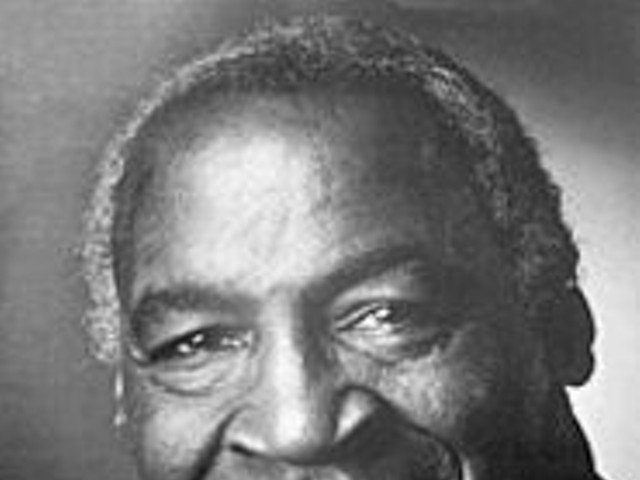In the opening-night performance of the St. Louis University Theatre production of The Crucible, Lee Emery as John Proctor threw that question away. He sped right through the line, thus skimming over the critical point that it is the public humiliation of lying -- not the lie itself -- that ultimately leads Proctor to choose death over indignity.
Why do I dwell on a single missed line reading? Because it was Emery's only missed reading of the entire evening. As John Proctor, this young actor's performance was so assured, so modulated, so intelligent, it was almost a relief to discover that he wasn't flawless. But at his young age, to so effectively triumph in one of the most arduous roles in American drama is astonishing.
No one has ever accused Arthur Miller of making things easy for either actors or audiences. He wrote The Crucible in 1953 as a response to the blacklisting, Red-baiting McCarthy era, a fearsome time when people were dragged before the imperious House Un-American Activities Committee and forced to name supposed enemies of the state who had already been named. The Crucible was Miller's attempt to write an American tragedy about "the rituals of guilt and confession." Although his drama is set in 1692, during the Salem witch trials, Miller assumed that when Proctor asked such questions as "Is the accuser always holy now?" the parallel to the McCarthy era would be all too obvious. Alas, when The Crucible opened on Broadway, some critics found the parallel too obvious, and that initial production limped through a brief six-month run.
The next year, McCarthy was repudiated. Then a curious thing happened: The further America moved past that dark, uncertain time, the more relevant The Crucible became. How could that be? Well, it turns out that The Crucible is not simply an allegory about the Cold War '50s; rather, it is a compelling and extremely theatrical reminder that Americans have always been, and continue to be, enamored of a good witch hunt. So long as innocent citizens are being hounded by government prosecutors, or by the media, or even by their own neighbors, The Crucible will remain as immediate as yesterday's headlines. Little wonder that it has become the most popular and frequently produced of all Miller's plays.
For the most part, this current St. Louis University mounting is as solid as the pine planking that makes up Tina Beck's spare scene design. Not only does all that pine set the play's ascetic tone, it sets the smell. A fresh pine scent fills the auditorium and hints that these events are not occurring a musty 310 years ago -- they are here and now.
Because this is a student production, some of the older characters are cast too young, and some of the wigs are foolishly inappropriate, all of which can be overlooked. Of greater concern is the fact that this performance is so sexless. Although Miller has stated that The Crucible is permeated by "the guilt of illicit sexuality," it's as if the women in this production have been neutered.
Nevertheless, thanks largely to Emery's remarkable performance, the viewer is forcefully reminded that, nearly 60 years after it was first written, The Crucible remains one of America's most vital plays. Just as Thornton Wilder's life-affirming Our Town shines a beacon on our better instincts, so does Arthur Miller's tragedy, set in another New England town, reveal the perverse, frightening underside of our nature.





